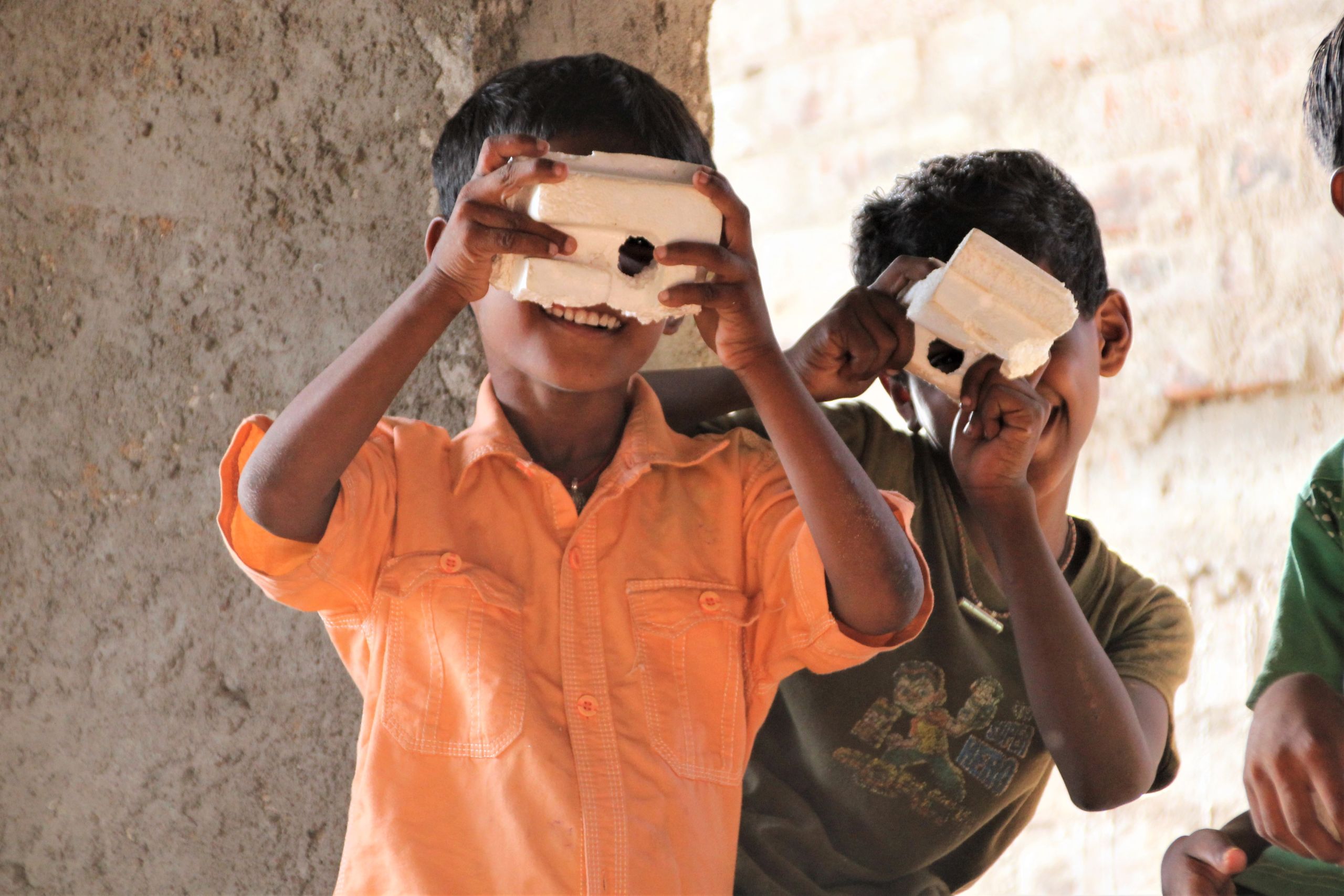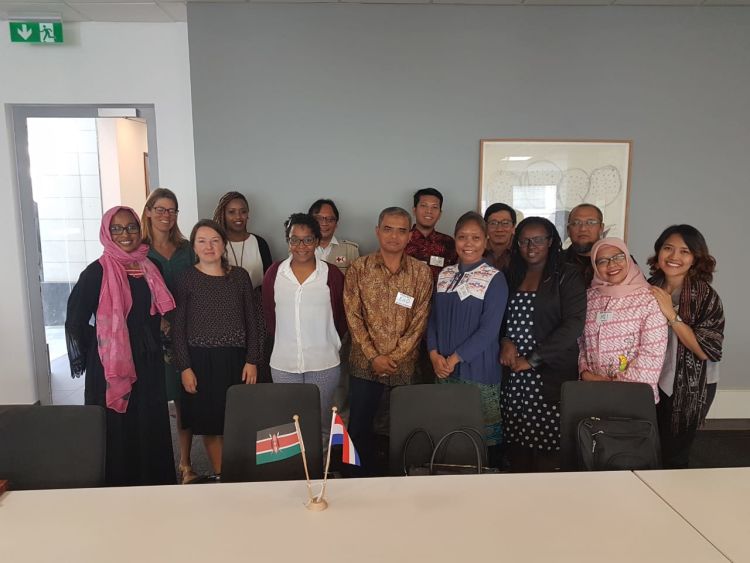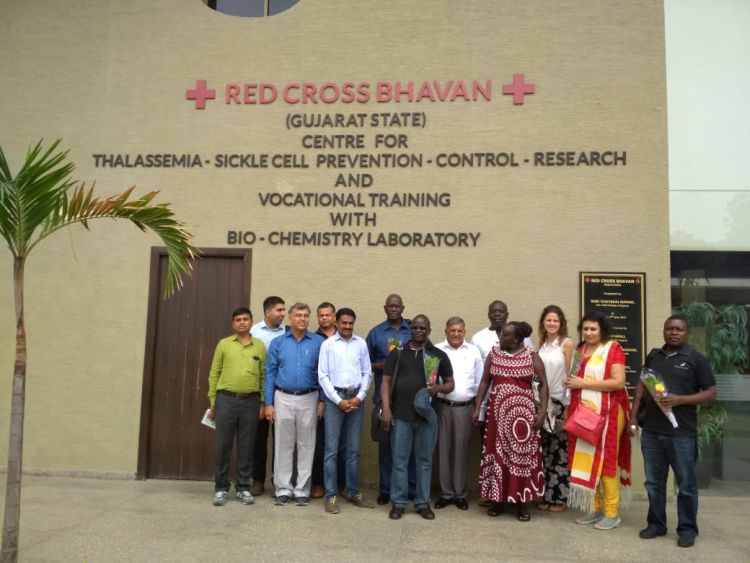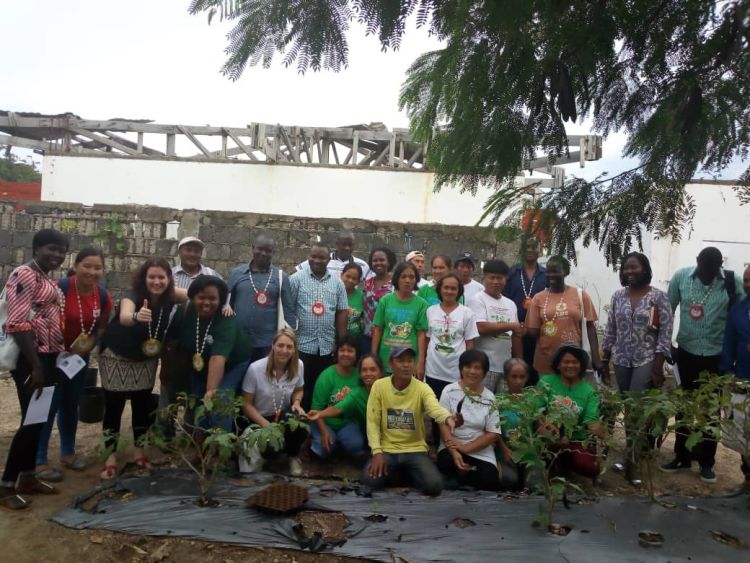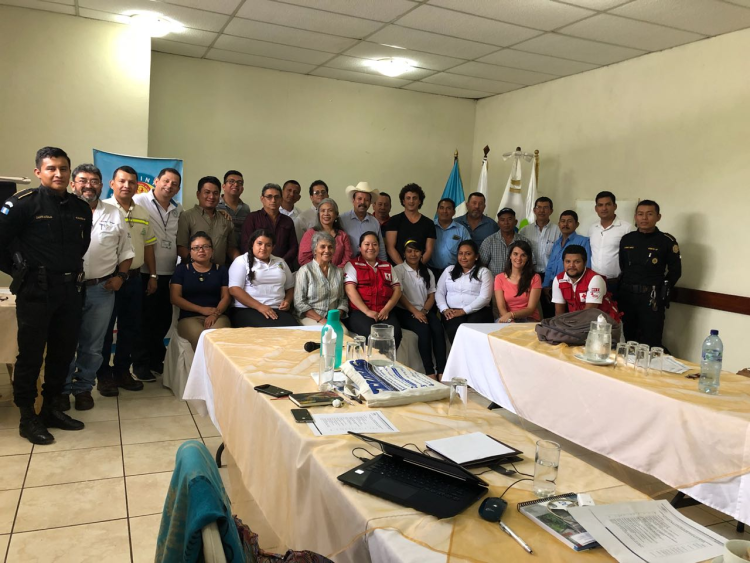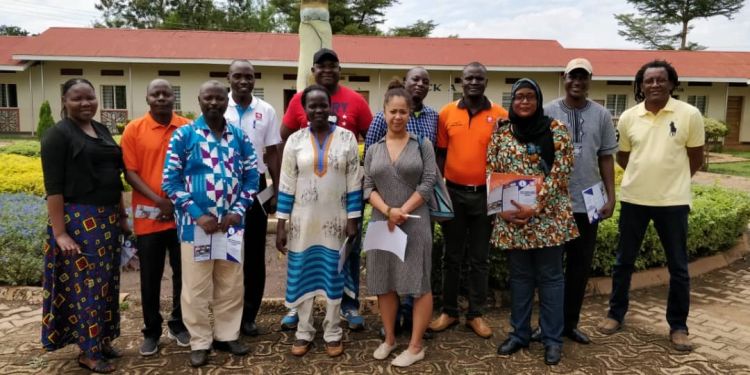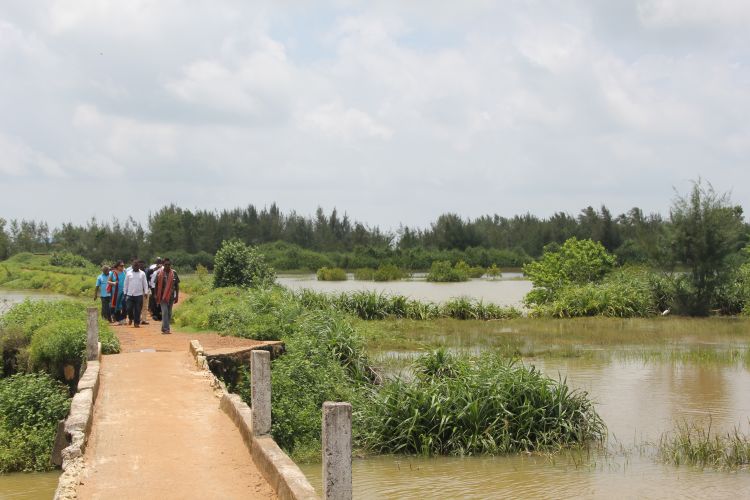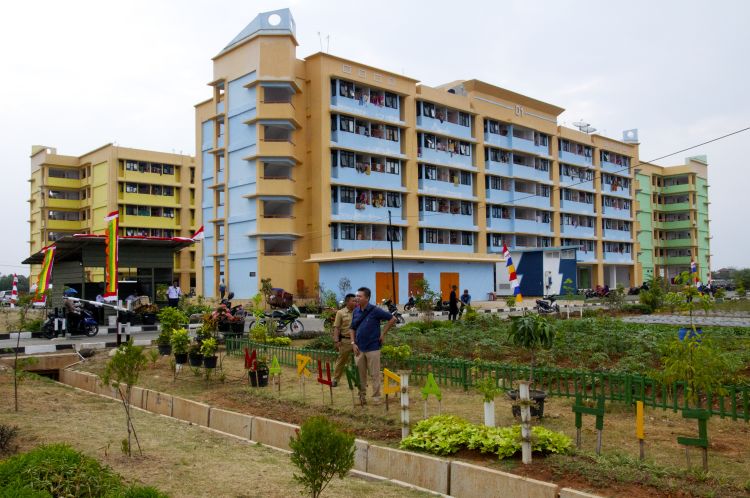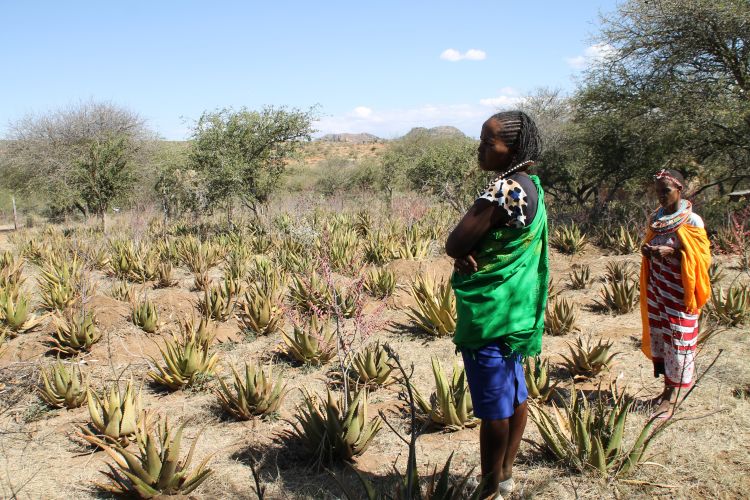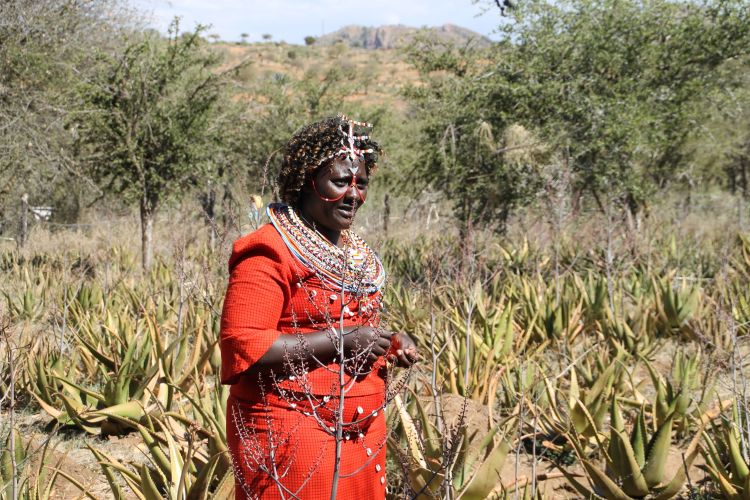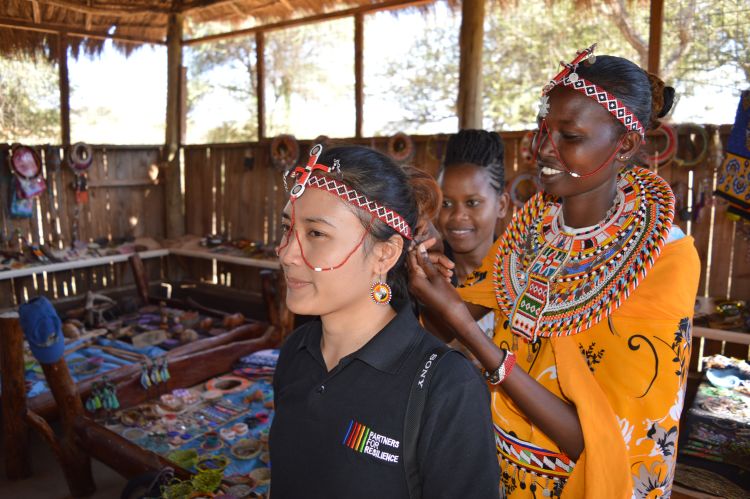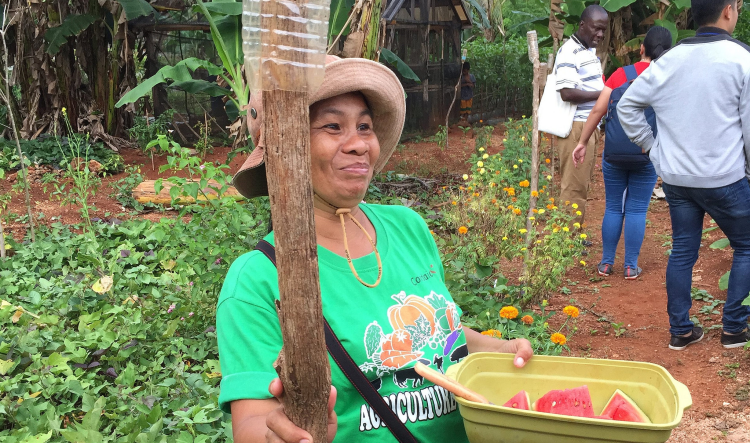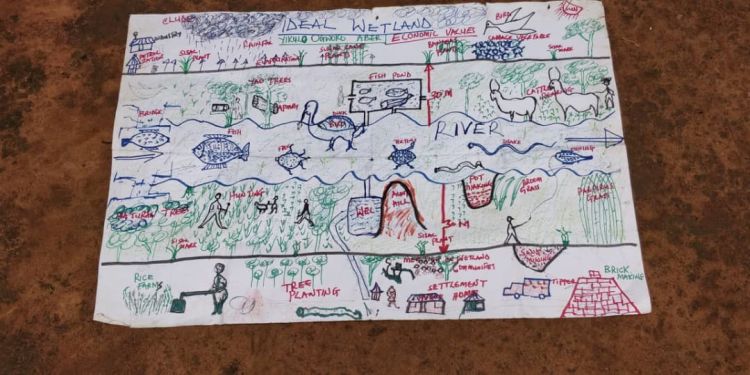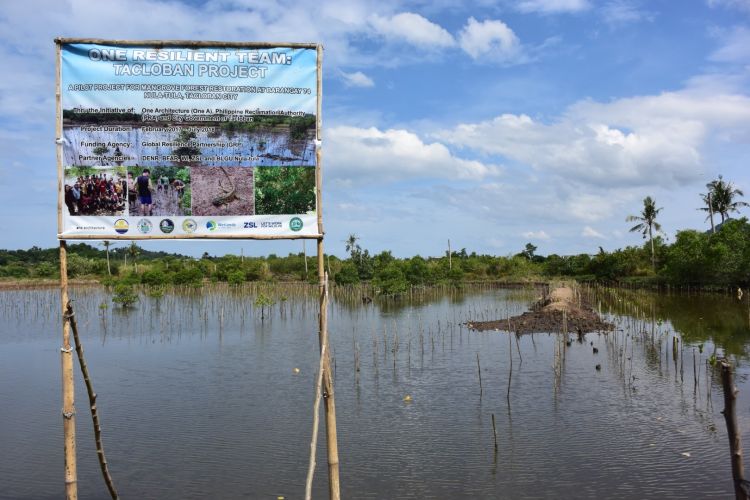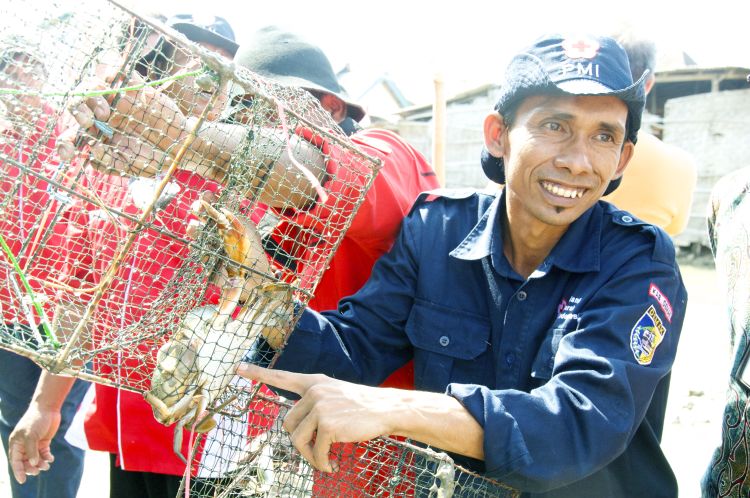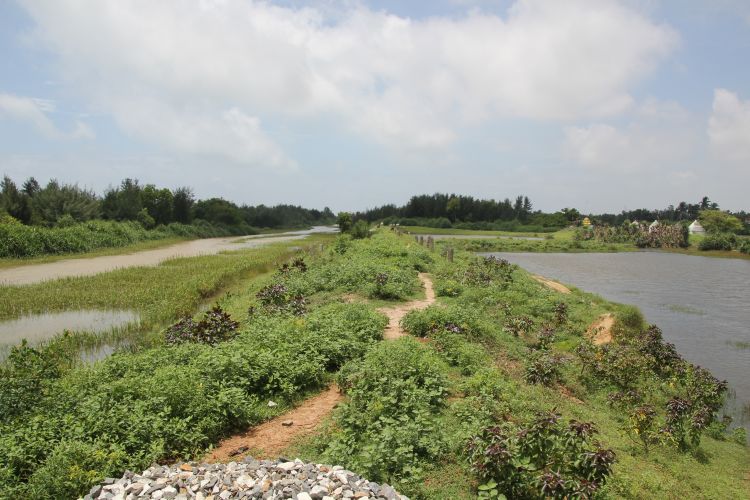Partners for Resilience
Learning Exchange Visits 2018
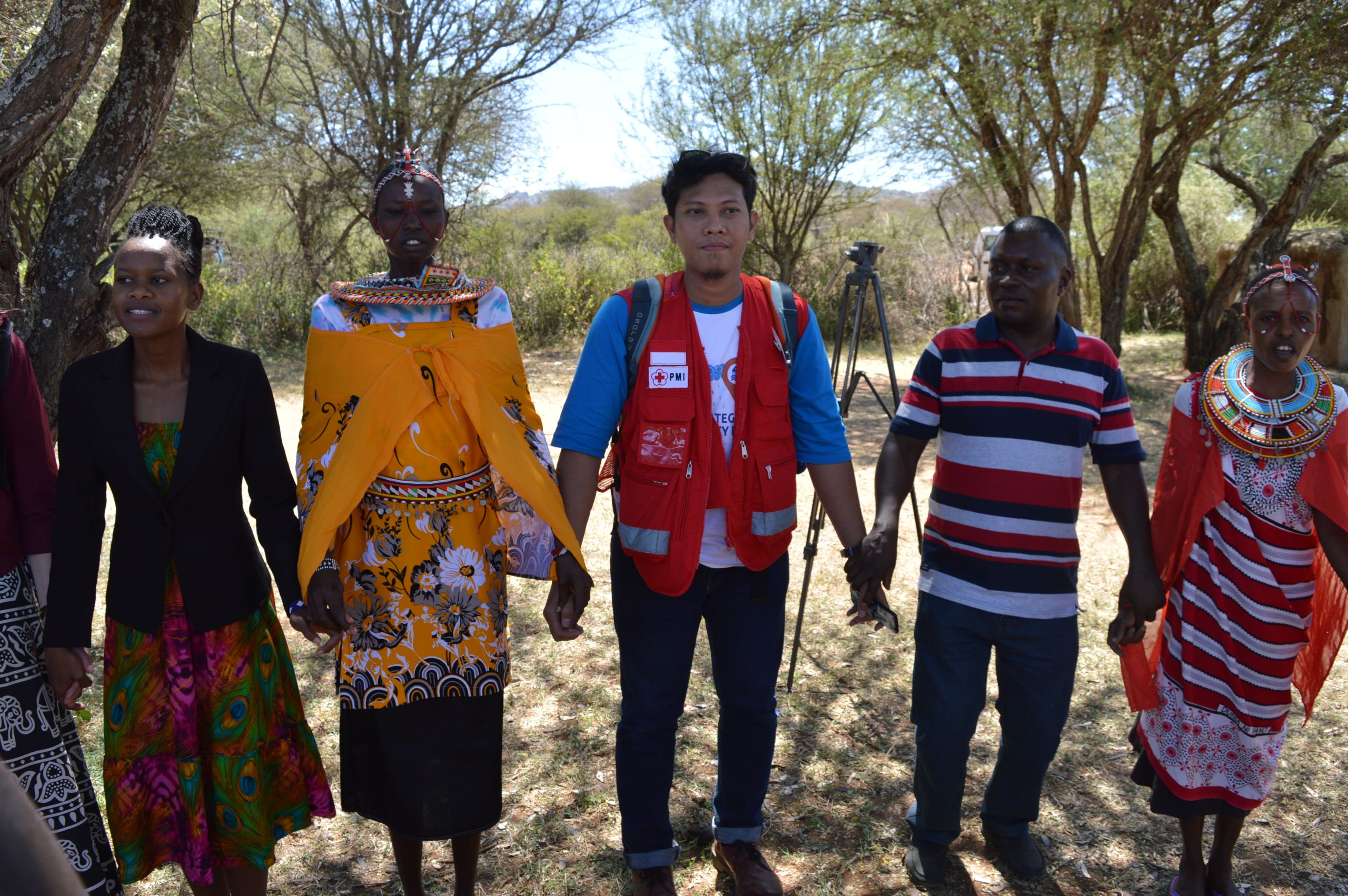
In August and September 2018 six of the ten Partners for Resilience (PfR) programme countries - Uganda, Philippines, Indonesia, Kenya, Guatemala and India hosted learning exchange visits involving PfR staff and local partners, along with national and local CSO and Government representatives from eight other PfR countries.
The main purpose of the visits was:
1) To promote south-south learning to gain new insights and ideas to enhance policy dialogues and capacity strengthening work.
2) To facilitate learning between key local CSO's and Government stakeholders.
3) To provide an opportunity for a light touch peer reflection between countries.
Zeituna Roba, PfR Kenya Country Lead, explains the purpose of the learning exchanges in her own words:
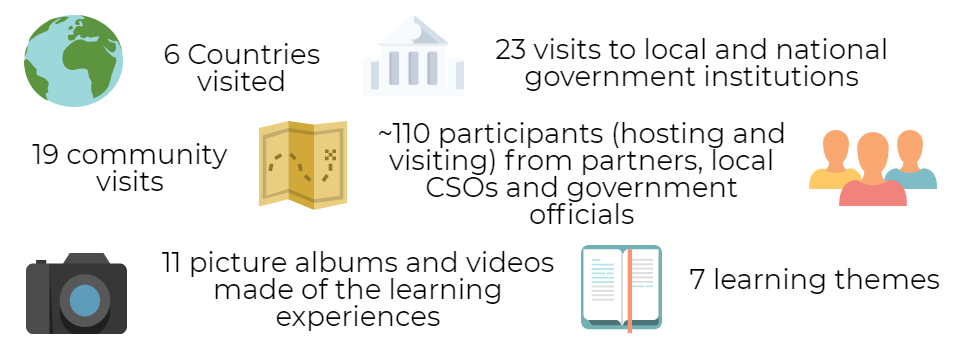
Each country identified their key learning themes and were matched with a country that had relevant experiences to share on those topics. This resulted in seven different learning themes common to all countries, the key highlights and lessons from which are captured in the sections below.
Engaging in National policy processes
In almost all countries teams have made tremendous progress on their national level policy dialogues and so it's not surprising they had a lot to exchange in terms of lessons learnt and strategies to achieve change.
The PfR Kenya team found they had synergies with the PfR Indonesia team in terms of their focus on influencing their respective National Climate Change plans (Indonesia is influencing their NAP and Kenya their NCCAP) and exchanged on do’s and don’ts when it comes to working with Government to push forward this agenda. The Kenya team were particularly impressed with Indonesia’s use of ‘IRM Champions’ - an innovative approach to working with respected individuals to take key messages forward and hope to replicate the approach.
PfR’s main focus is on the dialogue component of the Dialogue and Dissent programme, though this does not mean that there is no room for dissent. However we have learnt that constructive dialogue and humanitarian diplomacy opens doors towards the integration of IRM in policies, practices and investments - while in the meantime it supports creating an enabling environment for civil society to engage with government.
"We do not want to support activism but our aim is to open the avenues for dialogue"
In Uganda, the PfR Mali team learnt about the work the Uganda team had undertaken with other CSO's in relation to the Parliamentary Forum on Climate Change, which resulted in a 5 year strategic plan. Key learnings of Mali team related to this were the importance of a strong partnership with Parliament in order to influence policy, the timing of activities, in the case of Uganda in time to influence preparation of Climate Change Bill, and the importance of community consultation at all levels including in monitoring and evaluation processes.
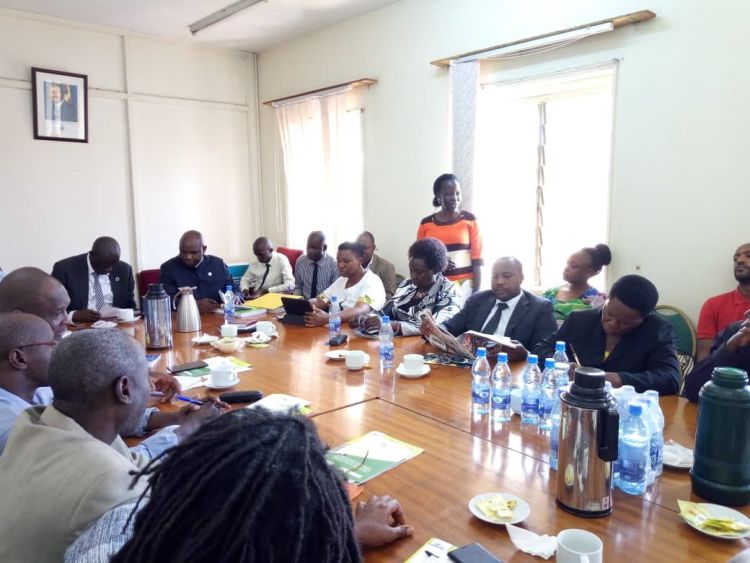
During the visit to PfR Guatemala, it became clear to the visiting team from the Philippines that PfR partners had positioned themselves at national level as technical support to their Government agencies and managed to create space for dialogue. Furthermore they saw how the municipal level planning work (a key focus of the Guatemala programme) is supporting national level discussions.
Reflecting on Capacity Strengthening
What became evident during the exchanges, as well as in our annual reporting cycles, is that the teams have so far mainly focused on building the capacity of themselves and their direct partners. As a response to this it was noted that for them to be able to build the capacity of other people and organisations, they need to first have a full grasp on lobby and advocacy themselves, which for most people involved in the PfR programme is a new area of work.
All teams believe that there will be more focus on engaging and strengthening wider civil society in the years to come.
In PfR India we have seen a great example of how a local CSO partner, NetCoast has taken up the role of strengthening other CSOs in the region. Below you see one of them speaking to women of the Humara village about ecosystem services.
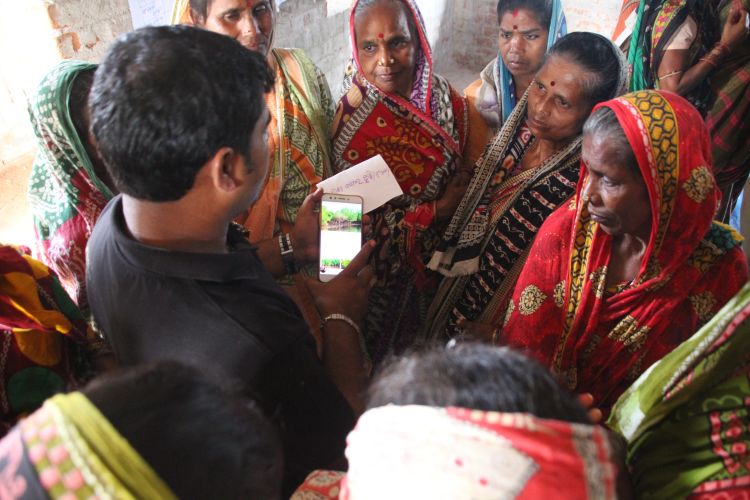
Local CSO staff member explaining what mangroves are to women in Humara, Odisha
Local CSO staff member explaining what mangroves are to women in Humara, Odisha
In Guatemala, the PfR Philippines team learnt about how PfR aimed to build people's capacity to understand and apply IRM related practices through mainstreaming IRM elements into the academic curriculum at the national level as well as supporting the creation of an IRM knowledge platform through a network of Universities.
Capacity strengthening (for lobby and advocacy) is a long term process, and so is resilience building. However we can see that the country teams are making progress towards achieving their objectives and more and more we see that other civil society partners and community based organisations are joining in dialogues, undertaking their own dialogues, or training communities in IRM.
Not just learning but influencing….
Many countries took advantage of the opportunity of hosting a visit that included government representatives from other countries to undertake high level national an local level advocacy and dialogues, inviting their own government representatives to come and meet the visitors. This shows the teams are now making good use of strategic opportunities that present themselves.
PfR Uganda invited the PfR Mali team to meet with the Speaker of the Parliament of Uganda and to launch the new 5 year (2018-22) strategic plan for the Parliamentary Forum on Climate Change.
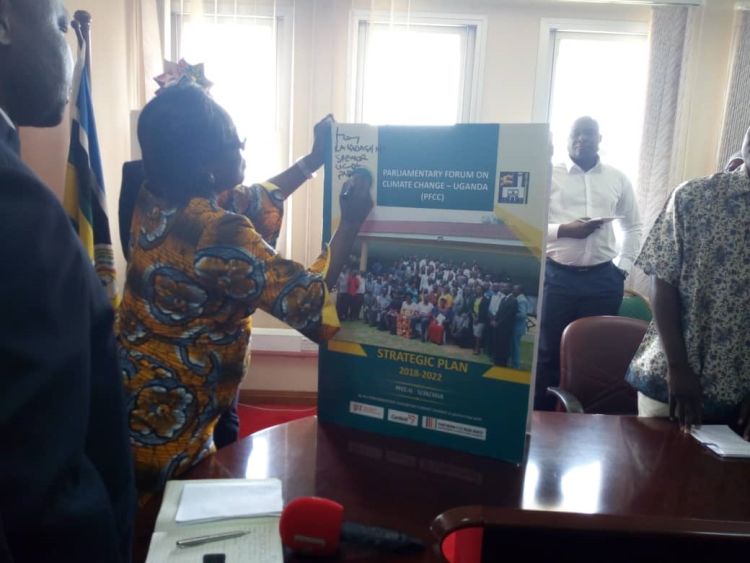
PfR Philippines took advantage of PfR Uganda and Ethiopia teams visiting to organize a high level round table with Government officials, opened by the Netherlands Ambassador to the Philippines Marion Derckx to discuss local development planning and integrated risk management.
The PfR Kenya team use the opportunity of the visit from the Indonesia team to arrange a meeting with the Netherlands Embassy where they agreed on more in-depth collaboration, followed by a meeting with the Climate Change Directorate on supporting further development of National Climate Change Adaptation plan (listen to the sound bite below). They also managed to get the media's attention, which resulted in a news broadcast on KBC1 here.
PfR Indonesia used the opportunity of their Kenyan visitors to meet with their government about urban resilience and discuss enhancing the linkages between PfR and other resilience projects such as the 100 Resilient Cities initiative.
In Guatemala, the team took the opportunity to arrange for the visiting team from the Philippines to meet with the municipality authorities of Taxisco, including the Mayor during a workshop on risk and vulnerability analysis for local development plans.
The exchange was a great opportunity to learn, but also to build our relationship with our government official, which will help us back home.
Finally, PfR India used the opportunity of their PfR South Sudan visitors and India HQ staff travelling to the different regions, to set up meetings with the Regional Disaster Management authority in Gujarat and the regional Meteorological department in Odisha. Both dialogues opened new doors for collaboration between the local CSO partners and the institutions.
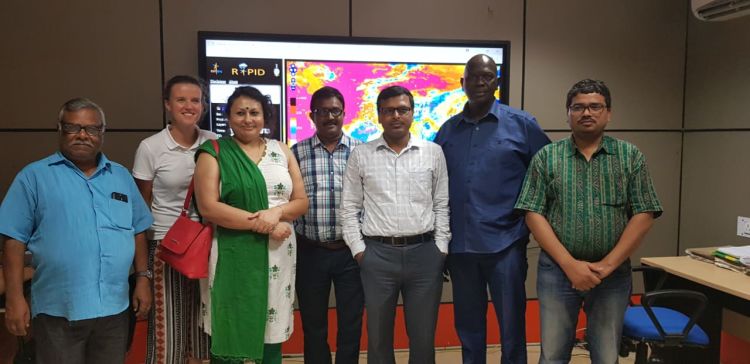
Rural and urban resilience linkages
In many of the PfR countries we see increasing migration from rural to urban areas. Therefore many of the teams exchanged their experiences and challenges on this specific topic.
PfR Kenya has mainly focused on working with rural communities to date, however is experiencing the same rate of rural-to-urban migration as Indonesia so there were many lessons to be learnt between the two countries. The Kenya team found it very insightful to visit the Murunda Urban Resilience in Action (MURIA) project and Jakarta Smart City and Grand Design in Indonesia, and were impressed by the waste banks, rainwater harvesting and risk proof urban farming, and interested to see what could be replicated if PfR expands into urban areas of the target counties in Kenya.
“In our Kenyan context we haven’t internalized the concept that our project can build the resilience of people in urban areas, we have only focused on rural areas and that is something we wanted to explore in Kenya. So we were very happy to see through this exchange, if we engage in urban resilience what it could look like”
Diversifying livelihoods
Diversifying and adapting livelihoods to the changing risks faced by communities is a key element of resilience building and during the exchange visits the teams witnessed a wide variety of practices.
One common aspect of the PfR Kenya and Indonesia programmes is their focus on supporting tourism as an alternative livelihood. During the Indonesia visit, PfR Kenya got to learn about how the Indonesia team are helping communities to benefit from eco-tourism based in Mangroves, whilst in Kenya the Indonesia team witnessed cultural tourism in the form of women’s beadwork groups. Both teams learnt from each other about how to further strengthen their support for tourism based livelihoods in their respective countries.
In Uganda, the PfR Mali team witnessed shea butter production, not only more sustainable but also more profitable than the previous practice of cutting down tress to burn for charcoal. In the words of one community member: “when we see shea nut, we just see wealth, a good source of income during times that crops fail".
In the Philipppines, the PfR Ethiopia and Uganda teams were impressed by the PfR supported Calicoan Island Champion Farmers Association in Eastern Samar, who are using more climate-resilient farming practices. They have been trained in intensive 'container gardening' so they can experiment with soil fertility, crop suitability and different watering regimes adapted to the changing climate. They also receive climate information to help them decide what and when to plant, approaches which PfR Uganda and Ethiopia are considering replicating.
Leveraging public funds for IRM implementation
The shift in focus in the second phase of PfR from direct community interventions to policy dialogues and capacity strengthening has been challenging in many countries. As such many countries have supported communities to access other sources of funding for community activities, this in itself being an aspect of capacity strengthening.
In the Philippines, the Ugandan and Ethiopian teams learnt how PfR supported the Guiuan Local Government Unit to develop a proposal to People's Survival Fund - a national climate change finance fund set up in 2015, to fund their climate change action framework (CCAF).
Another good example was shown to the South Sudan team in the village of Gohkarkuda, India. Where in 2011, local PfR implementing partner, NetCoast, helped the community to map the challenges and risks they were facing and afterwards provided advisory services to the community that helped them to access government schemes that would increase their resilience and the sustainability of their livelihoods. Read more here.
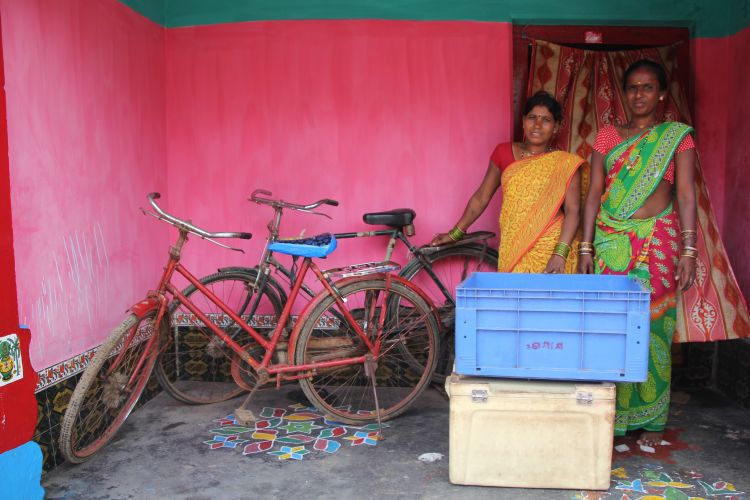
Finally in Indonesia the team learned how Cordaid/KARINA was able to mobilize funds from different sources (including the private sector) to support the implementation of IRM in practice. The projects in turn are used in dialogues with other stakeholders to convince them of the IRM approach.
Ecosystem management and restoration practices
Ecosystem management and restoration approaches were central to all exchange visits and showcasing and comparing them has provided the teams with valuable insights.
PfR Mali team visited Te-Abala village in Uganda where they met with the Natural Resources Management Committee and learnt about an agreement that was signed by all stakeholders, which includes a wide variety of activities that were put in place to manage the natural resources of the area and restore the ecosystems. Also depicted in the poster you see in the background. This presented the team with useful insights that they can apply in their work with farmer, fishermen and livestock herder coalitions back home.
In Guatemala the Philippines team learnt how schools and municipal authorities are engaging the community in developing plans and educational strategies for IRM, for example cleaning and protecting their environment, including from the impacts of cement and sugar cane production. A key reflection from the team was the need to engage the private sector in not only providing financial support for such activities, but in sharing the responsibility for addressing the negative impacts of their practices.
The exchange between PfR Indonesia and Kenya led to new insights from the Kenya team about how to help community to live with the highly invasive proposis juliflora "mathenge" weed. They learnt from their Indonesian colleagues that it does have several benefits for communities such as being dried for animal feed (if processed properly), can be used as firewood and building material for shelter.This has prompted the Kenya team to undertake a study next year to fully understand the properties of mathenge.
Listen to M. Saparis Soedarjanto, from the Indonesian Ministry of Environment and Fisheries to learn more.
The Indonesia team was also impressed by the Camel Caravan - an initiative originally supported by PfR Kenya but now run by communities themselves to travel the Ewaso Nyiro river to raise awareness about the need to protect and restore the river basin ecosystem and promote peaceful co-existance of communities who depend on it. PfR Indonesia partner Karina KWI is considering replicating the approach with watershed communities in East Nusa Tenggara.
While in India, the South Sudan team saw how in the Gohkarkuda village the fresh water supply of the village had been at risk of salt water intrusion. PfR helped the community to get access to funds to reinforce the dike in between these two water bodies (picture left) to protect the water supply.
Engaging with the private sector
Engaging with the private sector is becoming an increasingly important area of PfR’s work, however it is challenging in many countries due to limited access to private investors and the fact that community interests are often overlooked in favor of economic interests. Therefore, countries were keen to learn from each other’s experiences in this area. In Kenya, the Indonesia team learnt about how PfR is engaging with the private sector in relation to the LAPPSET project, a regional infrastructure project in the counties where PfR is working involving a mega dam, which along with existing tourism projects, is impacting on communities’ access to resources. PfR Kenya aims to raise awareness of the projects and their potential impacts with communities and support them in having a voice in the planning and design process.
“In public private partnerships the fourth “P” is often forgotten: the “P” of people……”
In Guatemala the Philippines team learnt how schools and municipal authorities are engaging the community in developing plans and educational strategies for IRM, for example cleaning and protecting their environment, including from the impacts of cement and sugar cane production. A key reflection from the team was the need to engage the private sector in not only providing financial support for such activities, but in sharing the responsibility for addressing the negative impacts of their practices.
It’s clear from what was witnessed by all teams, that facilitating multi-stakeholder dialogue of this nature between different community groups, government and private sector is a long-term process which requires trust and relationship building.
PfR (exchanges) in the news
Continuing the learning....
This report has shown the diversity of the PfR learning exchanges and given you a glimpse at the different insights gained by PfR team members and their stakeholders. All teams have reflected on their learning exchanges in the 2019 planning workshops that took place in September and October of this year and adjusted their plans to include new insights learnt from their colleagues. We can see how the sharing and learning process has given new energy to the programme and strengthened relationships between countries resulting in a continued dialogue of learning.
To find out more...
If you are interested to see more pictures and videos produced during the visits, please have a look here:
Picture album visit to PfR Kenya
Picture album visit to PfR India
Picture album visit to PfR Indonesia
Picture album visit to PfR Philippines
Videos from day 1, day 2, day 3, day 4 of the PfR exchange in Indonesia.
Video from the learning exchange in Kenya - made by PfR Indonesia.
A video from the learning exchange in Uganda - made by PfR Mali.
Video reflections of the PfR South Sudan team, while visiting the offices of the India Red Cross in Delhi.
“The success of any journey according to my people, depends on the the luggage you carry back home and I would like to say that we are carrying a lot, a lot, of luggage back from the country they call the Philippines”
Shaban Mwanda, PfR Uganda visit to the Philippines
